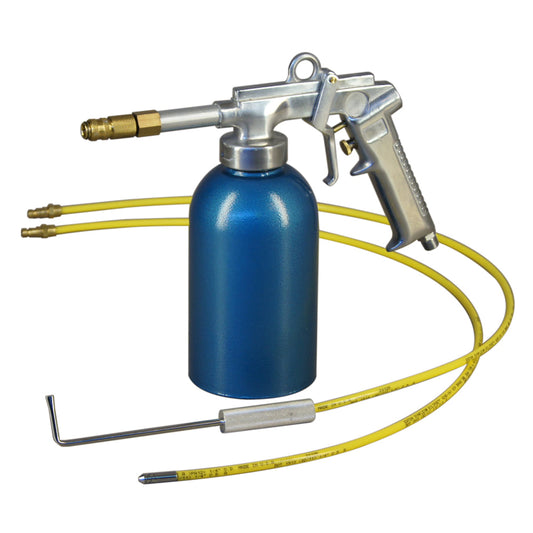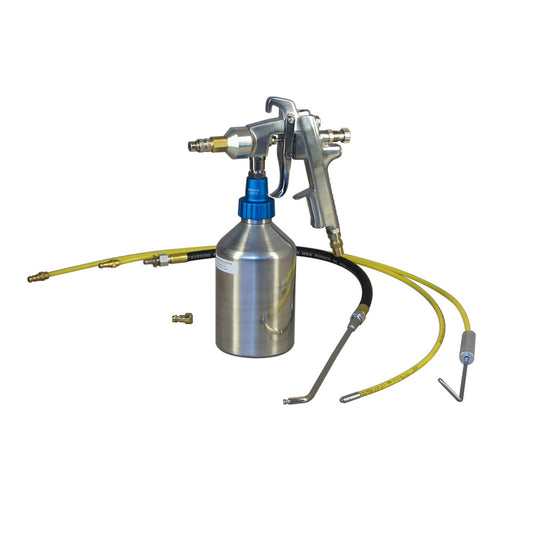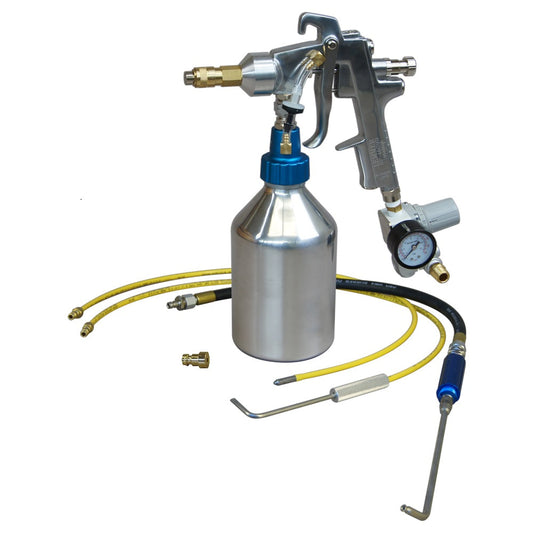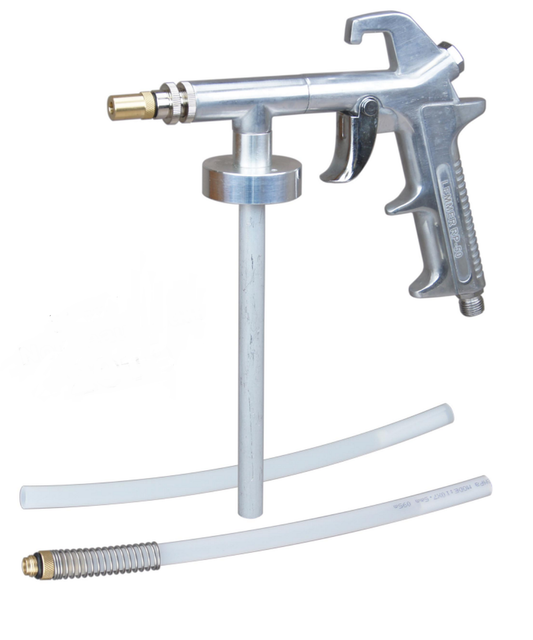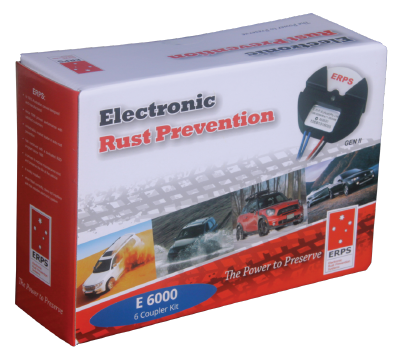
Electronic Modules for Rust Prevention?
Buying a new vehicle? You may get pressured to install the ‘electronic rust protection' modules that are supposed to stop vehicles from rusting.
These are sold as an alternative to various other options such as Krown rustproofing, Rust Check, Oil Spray, Fluid Film, Waxoyl and others. Part of the pitch is that you get these installed on your new car and then you don't have to do anything, as the car is now (supposedly) protected from rust.
They are typically installed under the hood and tap into your vehicles' electrical system for power. Then, one or two other wires are run to the vehicles' chassis to create a 'circuit' which creates a weak electric charge on the vehicle, which supposedly interferes with the potential chemical bond between metal and oxygen.
They are a simple module with about $10-15 of parts & then sold to consumers, often for $700.00 to 1000.00 or so at dealers, or direct for around $200-300.00. They are massively profitable.
Shop rustproofing
Do they work?
One of the main arguments is that the system is used on boats and pipelines, etc. When this system is used on boats, pipelines etc., they either need sacrificial anodes or an electrolyte for it to work. An ocean going boat sits in salt water, which provides the electrolyte. Your car doesn't (or shouldn't) do that.
Your water heater also works on a semi-similar principal; using a sacrificial anode to oxidize, rather than the water tank.
Sacrificial anodes aren't installed with the automotive units. If they were, they would need to be replaced regularly.
The units can’t protect against salt residue sitting on a spot for a couple of years…
The units often aren't sealed and moisture can get inside, causing corrosion in the unit itself (ironic, eh?), which soon renders the unit inoperable.
They can’t help anything that might be rubber mounted, or isolated, unless a dedicated circuit is run to that part of the vehicle..
Modern vehicles have specialty steels, dissimilar metals, sometimes with bonding agents, or plastics between panels which can interfere with the current. For example, Ford uses(or has used) a special panel on the firewall of some vehicles which has a thin layer of plastic between 2 layers of sheet metal.
There is usually paint or bonding agents between panels and fasteners. This can interfere with the current.
Insulation panels can interfere.
In many cases, the units are installed improperly, such that there’s no conductivity at all. If the paint isn't removed where the connection is made, and/or a proper metal to metal connection established, the current won't be able to reach the rest of the vehicle.
For the units to protect the whole vehicle, there would need to be circuits run to every single major chassis, body and structural component. You’d probably need dozens & dozens of circuits. This doesn't happen when these units are installed.
They apparently work in some applications with very closely controlled variables & that don’t usually have salt- ie pipelines. The charge has to very precise for the substrate and mass/area for it to work, in theory. This doesn't happen when these are installed on cars and trucks.
Cars already have a small charge in the body/chassis via the electrical system already in place, which is needed to operate various systems, and often generate static electricity while driving. – it doesn’t stop rust, so why would a cheesy, cheap little box?
The wiring itself can corrode, rendering the unit ineffective.
Normal automotive wiring corrodes all the time & it always has a charge- that alone should tell you these things won’t work.
Based on the above, I don't believe that these modules boxes work on cars and trucks & I haven’t seen any evidence that they do. We have seen many vehicles that had them installed exhibit serious rust by the time the vehicle is 10yrs old.
Other issues
They can (possibly) interfere with sensitive electronics on modern cars
They will drain your battery over time.
By the time that you realize they aren't working, it's too late. Your car is now seriously rusty.
Conclusion
Save your money and put it towards more effective, proven rust-prevention measures.


